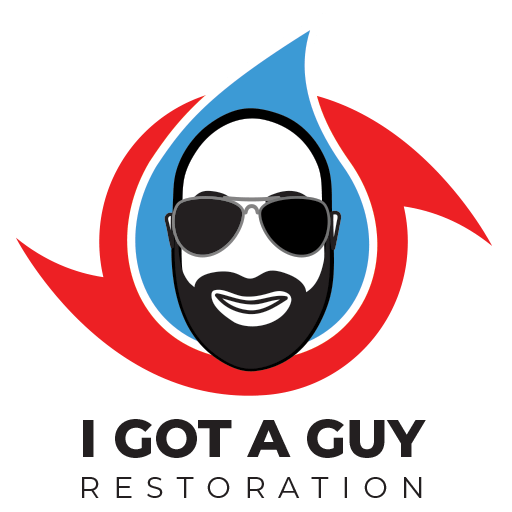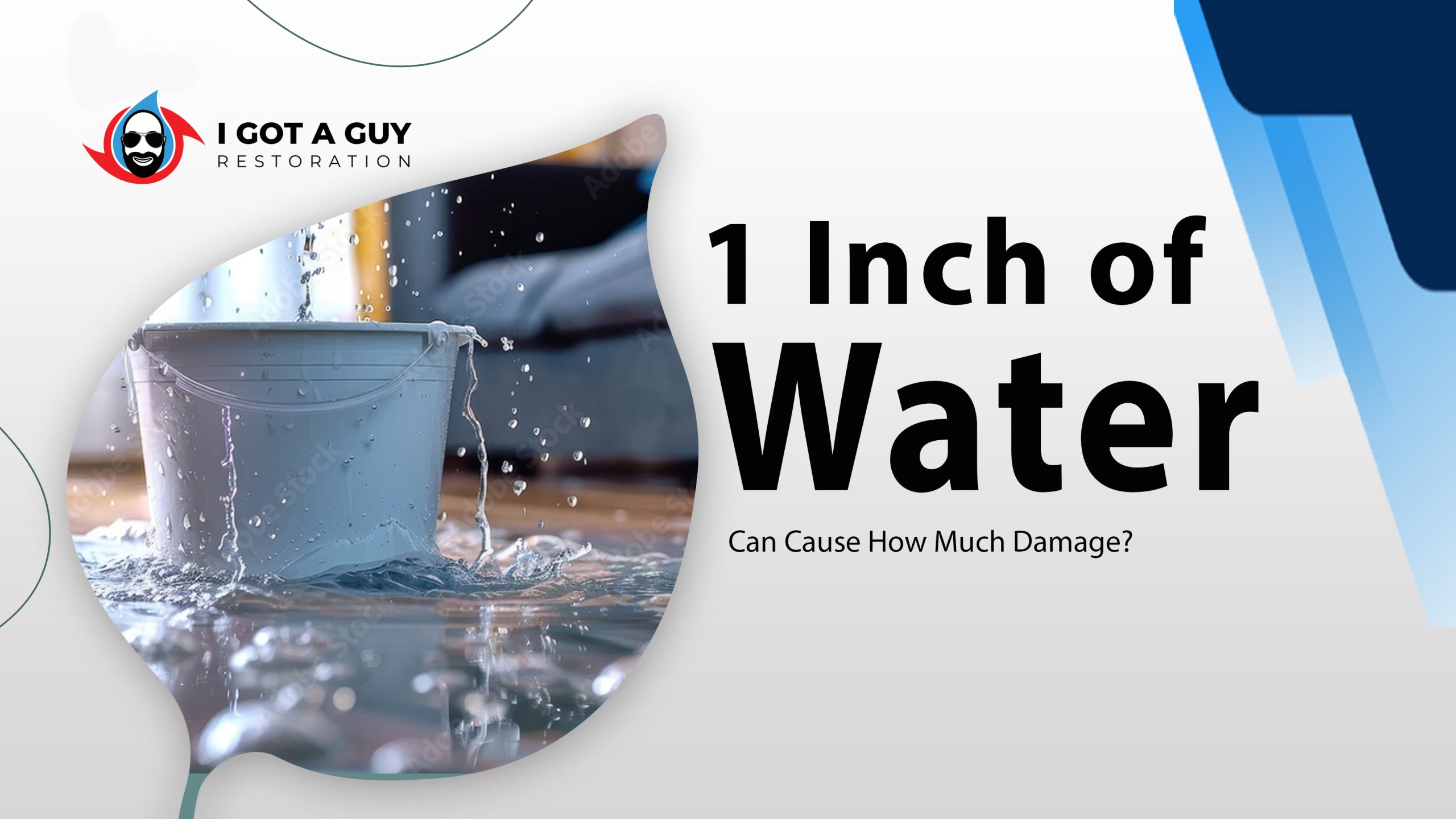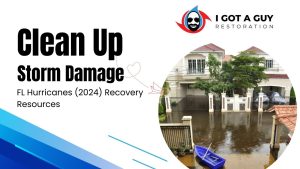Water damage is one of the sneakiest and most destructive forces that can hit your home or business. One little leak may not seem like such a big deal, but did you know that one inch of water can cause how much damage?
According to FEMA, just one inch of water can cost up to $25,000.
Water is an incredibly powerful force, and even a small leak can become a major headache if not checked. Water leaking or flooding pipes can lead to months of stress and costly repairs. Stay alert and act quickly to protect your property from the relentless damaging power of water!
Key Highlights
- Like a small pebble that causes a landslide, an insignificant water entry, if unattended, may initiate a chain of destructive developments.
- 1 inch or less than 1 inch of water penetration will compromise the drywall, insulation, and electrical systems. Growth of mold is also a key concern, and professional services in restoration normally need to be called upon at this point.
The Potential Damage of Just 1 Inch of Water
Most homeowners take water damage lightly and look at the minimal footprint that it might cause. But just one inch of water in a house can cost a lot in terms of structural and financial damage. Let’s see how this minor issue can create havoc in your property.
Structural Damage
One inch of water can penetrate flooring, walls, and foundations and compromise the structural integrity. Do you know that wood structures may warp or become brittle in a couple of hours following exposure to water? This is serious enough, with proper treatment; otherwise, these may result in more grave problems like rotting and even collapse. Among the most observable signs of structural damage include sagging floors, cracks in walls, and soft spots underfoot.
Flooring Issues
The reaction of various flooring materials to water exposure is also unique. For instance, carpets can become saturated and turn into perfect places for mold growth. Hardwood floors, on the other hand, may swell and buckle. Statistics have shown that 50 percent of carpets affected by water damage will require full replacement. Check for discoloration, a musty smell, or bubbling in carpets and floors-a clear sign of water intrusion.
Mold Growth
Even a small amount of water will be a fertile ground for the growth of mold and mildew. Mold may start to grow within 24 to 48 hours after exposure to water, highly dangerous to health for those allergic to some substances or suffering from respiratory problems. Warning signs include visible mold, musty smells, or sudden flare-ups of allergies. All these indicate a current mold problem that needs immediate attention.
Damage to Personal Belongings
Water can ruin furniture, electronics, and personal belongings. According to studies, 30% of household contents get damaged beyond possible salvage due to water exposure. Fabrics and upholstery absorb water and get stained permanently with an unremovable odor. If things feel damp or smell musty, it means that water is in your belongings.
More Expensive Repairs
They can inflate very quickly. Structural repair, flooring, and mold remediation can cost thousands or tens of thousands of dollars.
Electrical Hazards
Water and electricity don't mix. An inch of water can become an electrical danger and cause short circuits or fires if not attended promptly. Electrical home fires are said to account for about 51,000 per year, mostly originating from water-related problems. So, if lights start flickering, or if the outlets feel warm after coming into contact with water, turn off power and call for help.
The Insurance Consequences
Water damage takes precedence among the causes of insurance claims in the United States, covering roughly one in every five claims. Review your policy regularly and consider additional coverage for water-related incidents. A flood is often referred to as “the thief who takes everything,” and for good reason; just one inch of water can lead to repair costs of $25,000, while the average insurance claim after a flood in a home is around $38,000. .
Get a Water Damage Inspection
How Long Does It Take for Water to Cause Damage?
Critical twenty-four hours passed, but here is the water damage timeline:
- 24 to 72 Hours: Wooden parts and drywall may be affected and warped, while metal corrodes. The smell may be apparent, and there is a need to intervene before the damage becomes more complex and, hence costly.
- After 3 Days: After this, the damages are likely to get worse, no longer being minor. Act immediately and dry everything that had contact with the influence of the leaks and stop it in order to stabilize and make it safer for the property.
After 7 Days
- In this stage, your property may become a serious threat because it might tend to severe structural impairment.
- Electrical systems, which can easily be exposed to risks due to outlets and wiring, pose a safety risk.
- Ultimately, standing water seeps into the foundation of a building, and the levels of water-borne contamination from flooding are a major issue; for the insulation, ventilation, and air-conditioning of any property.
Most people, especially the owners, would want to face the problem head-on when they encounter water damage. However, this often results in causing further damage in the long run.
Therefore, seeking professionals to handle the issue for you is already the best alternative. Find I Got a Guy Restoration for water damage restoration
like it never even happened.
For Water Damage, I Got a Guy Restoration is Here to Help
I Got a Guy Restoration is here to clean up and restore your property when water damage threats including Clean Water Damage, Gray Water Damage, Black Water Damage, Roof Leaks, Foundation Cracks, Pipe Bursts, Appliance Leaks, and Flooding from Natural Disasters as well.
We provide 24-hour emergency service to everyone, including holidays and weekends.
With our professionals, time is saved, safety guaranteed, and property restored fully.
Conclusion
Every householder should know what one inch of water can do in terms of damage. So, knowing the symptoms of water damage and acting swiftly will help save your property from costly repairs and a much more complete restoration. So, don’t let the leakage become a disaster. Be alert and prevent further disaster from occurring!






